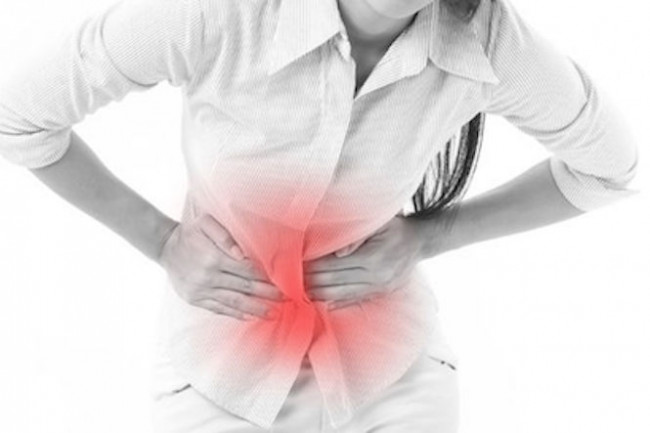While both men and women contract various conditions, some health issues affect women differently and more commonly. Furthermore, many women’s health conditions go undiagnosed and most drug trials do not include female test subjects. Even so, women bear exclusive health concerns, such as breast cancer, cervical cancer, menopause, and pregnancy. Women suffer higher heart attack deaths compared to men. Depression and anxiety exhibit more frequently among female patients. Urinary tract conditions present more often in females, and sexually transmitted diseases can cause more harm to women. Among the conditions that present most frequently in women, the following eight illnesses pose considerable health risks.
Heart Disease
In the United States, heart disease causes one in every four deaths among women. Although the public considers heart disease a common issue among men, the condition affects males and females nearly equally. Yet, only 54 percent of women realize that heart disease is the top health condition threatening their gender. In the United States, 49 percent of all consumers suffer from high blood pressure, high cholesterol, or smoke; factors that contribute to heart disease.
Breast Cancer
Breast cancer, which typically originates in the lining of the milk ducts, can spread to other organs, and is the most aggressive cancer affecting the global female population. The condition presents more among female populations in developed nations due to their extended life spans.
Initially, women afflicted with breast cancer may develop breast lumps. Most breast lumps are nonthreatening, but it is important for women to have each one checked by a care provider.
Ovarian and Cervical Cancer
Many people are not aware of the differences between ovarian and cervical cancer. Cervical cancer originates in the lower uterus, while ovarian cancer starts in the fallopian tubes. While both conditions cause similar pain, cervical cancer also causes discharge and pain during intercourse.
While ovarian cancer presents extremely vague symptoms, the condition is very complex. Finally, Pap smears detect cervical but not ovarian cancer.
Gynecological Health
Bleeding and discharge are a normal part of the menstrual cycle. However, added symptoms during menstruation may indicate health issues, and unusual symptoms, such as bleeding between menstruations and frequent urinating, can mimic other health conditions.
Vaginal issues could also indicate serious problems such as sexually transmitted diseases (STDs) or reproductive tract cancer. While care providers might treat mild infections easily, if left unchecked, they can lead to conditions such as infertility or kidney failure.
Pregnancy Issues
Pre-existing conditions can worsen during pregnancy, threatening the health of a mother and her child. Asthma, diabetes, and depression can harm the mother and child during pregnancy if not managed properly.
Pregnancy can cause a healthy mother’s red blood cell count to drop, a condition called anemia, or induce depression. Another problem arises when a reproductive cell implants outside the uterus, making further gestation unfeasible. Fortunately, obstetricians can manage and treat common and rare health issues that emerge during pregnancies.
Autoimmune Diseases
Autoimmune disease occurs when body cells that eliminate threats, such as viruses, attack healthy cells. As this condition continues to escalate among the population, researchers remain baffled as to why the condition affects mostly women. While many distinct autoimmune diseases exist, most share symptoms such as:
● Exhaustion
● Mild fever
● Pain
● Skin irritation
● Vertigo
Most of the autoimmune system rests in the stomach. Duly, many who suffer from this condition have resorted to natural healing practices, such as:
● Consuming less sugar
● Consuming less fat
● Lowering stress
● Reducing toxin intake
However, the best defense against autoimmune disease is early detection.
Osteoporosis
Osteoporosis weakens bones, allowing them to break easily. Several factors can cause the condition that occurs mostly in women, such as:
● Age
● Alcohol consumption
● Certain prescriptions
● Genetics
● Lack of exercise
● Low body mass
● Smoking
● Steroid use
To detect the condition, care providers measure bone density using an X-ray or ultrasound diagnostic. While no cure exists for osteoporosis, care providers can prescribe treatment to impede illness progression, which might include dietary supplements, healthy lifestyle choices, or prescription medication.
Depression and Anxiety
Natural hormonal fluctuations can lead to depression or anxiety. Premenstrual syndrome (PMS) occurs commonly among women, while premenstrual dysmorphic disorder (PMDD) presents similar, but greatly intensified, symptoms. Shortly after birth, many mothers acquire a form of depression called the “baby blues,” but perinatal depression causes similar – but much stronger – concerns, emotional shifts, sadness, and tiredness. Perimenopause, the shift into menopause, can also cause depression. No matter how intense the symptoms, care providers can provide relief with prescription or therapeutic treatments.
Health Technology for Women
Soon, new technologies will emerge to assist care providers in treating women’s health conditions. Researchers have developed innovative medical treatments, such as a patient operated device that prepares women for breast reconstruction using carbon dioxide instead of needles and a blood test that can detect whether gestation has started outside of the Fallopian tubes. Other developing medical technologies include an at home, do-it-yourself Pap smear and a test that determines pregnancy using saliva as a sample.
Women can lower the risk for cancers and other common illnesses with healthy habits and regular care provider visits. However, in many undeserved communities nurse practitioners (NPs) and nurse midwives fill the shortage created by lack of care providers, while covering service areas encompassing far too many clients. As America’s health care needs increase, care provider organizations will need many more NPs to ensure positive health outcomes for women in these communities.











